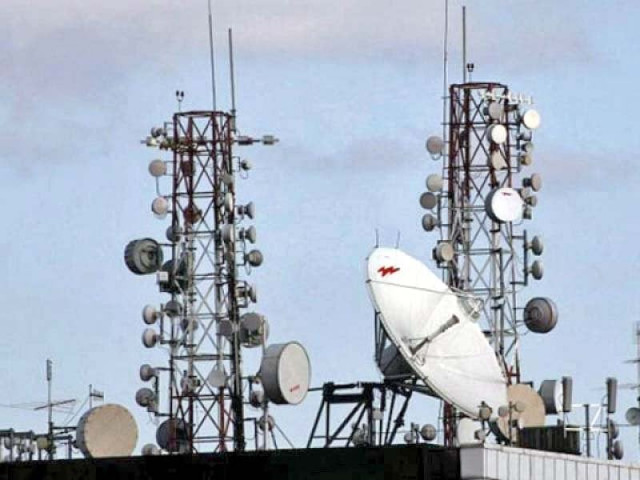Telecom operators worried over delay in licence renewal
Licences of Warid, Jazz, Zong and Telenor are going to expire this year

Cellular companies not only need to renew their current licences, but they also require new spectrums as with growing number of subscribers, the present spectrum has become congested. PHOTO: FILE
The delay may be a serious setback for cellular services and will adversely impact phone users.
“The government was supposed to introduce a licence renewal framework about one and a half year ago as per Pakistan Telecommunication Authority (PTA) laws. However, it is still awaited,” an official of one of the three cellular phone companies, whose licences are expiring in the near future, told The Express Tribune.
In 2004, Warid, Jazz, Zong and Telenor bought licences for 15 years according to international standards. Licences of Telenor and Warid - which was later merged with Jazz - are going to expire in May while Zong’s licence will expire in October.
Major progress likely in telecom sector ahead of 5G
There are many challenges in the way of renewing the spectrum licences as the government wants to sell the spectrum at a higher price to gain handsome revenues. This may seem a good move, but in the long term it will harm the country’s goal of digitalisation, which acts as a catalyst for economic growth.
This is an era of high-speed data, which requires basic tech infrastructure to boost economic development, e-commerce, e-business models and digitalisation of services.
The cellular companies not only need to renew their current licences, but they also require new spectrums as with growing number of subscribers, the present spectrum has become congested like a highway.
Meeting with PM: Telecom operator cherishes investment in Pakistan
With teledensity of 84% in Pakistan, the telecom industry’s growth has stagnated in voice category. However, the data is growing fast with increasing online services and apps, but it still covers around 30% of the population. Over the coming years, the use of data will increase manifold and the next growth curve in the telecom industry will be the mobile broadband.
“The world’s most valuable resource is no longer oil, but data,” said an official of another cellular company.
Developed nations make the spectrum readily available for future technological needs. Japan, for example, offers free spectrum to telecom operators while the UK gives perpetual licences to telecom companies at extremely low prices, said the official.
While Pakistan learns from these countries, it must also focus on how badly spectrum auctions went in India in 2016 and Bangladesh in 2018.
In India, the government priced the 700MHz spectrum at a high level at $60 million and the entire spectrum remained unsold as no operator was willing to purchase it.
In Bangladesh, the government set a price of $32 million (per-MHz) and managed to sell only three out of 11 available blocks.
The high-priced spectrum and renewal can cause a slowdown in foreign direct investment in Pakistan from parent companies of these cellular companies as there are other countries in the region where they can go for business.
“The government needs to create a right balance where the country gets fair revenue and companies operate at competitive prices,” he said. “A futuristic approach is the key to socio-economic progress in the country.”
Pakistan has lots of unused spectrum, which is like providing the right of way in the air. The country has issued less than 40% spectrum while the rest is unused and it is not something like oil which will finish if consumed.
“It is like the way in the air, if the way is not used a day, the advantage is missed for the day,” remarked a market expert. “It is an asset only if it is utilised effectively - unutilised spectrum is of no value to the government or to the economy.”
Therefore, “it is critical to anticipate the future technological needs considering the global advancements and have a spectrum roadmap that identifies and ensures availability of high-speed mobile broadband services to support the ambitious targets to create the knowledge economy,” he said.
Published in The Express Tribune, February 23rd, 2019.
Like Business on Facebook, follow @TribuneBiz on Twitter to stay informed and join in the conversation.


















COMMENTS
Comments are moderated and generally will be posted if they are on-topic and not abusive.
For more information, please see our Comments FAQ